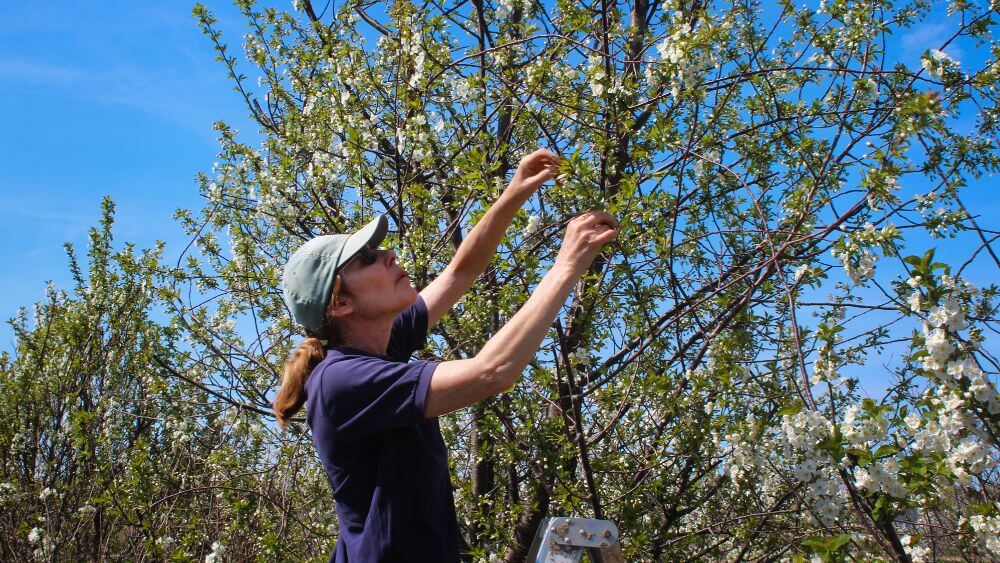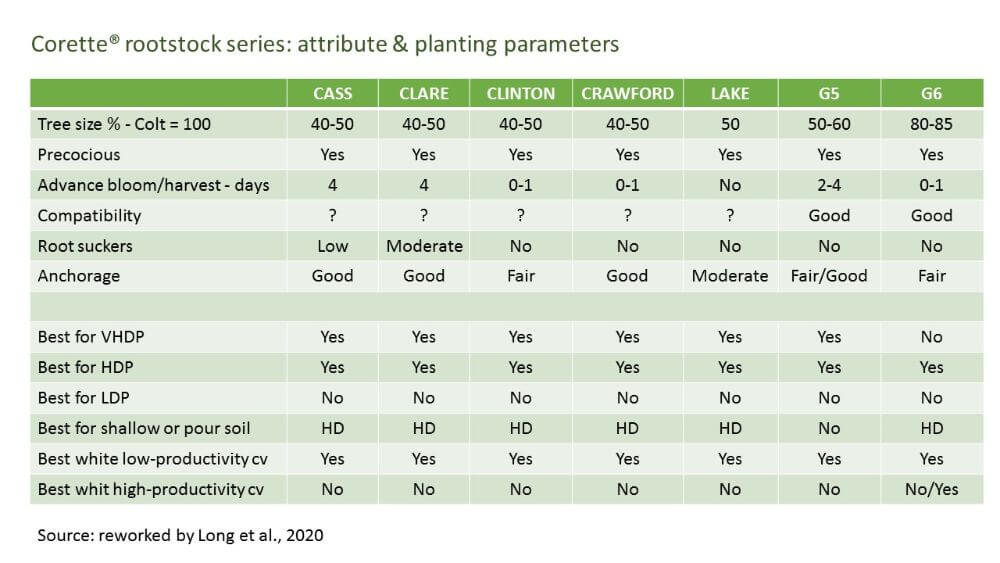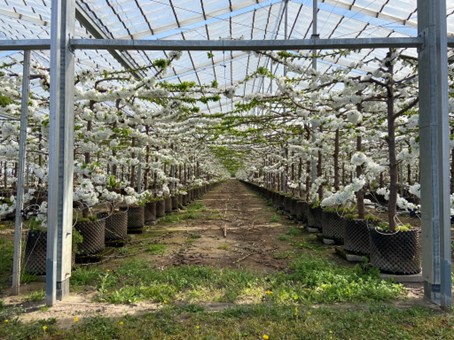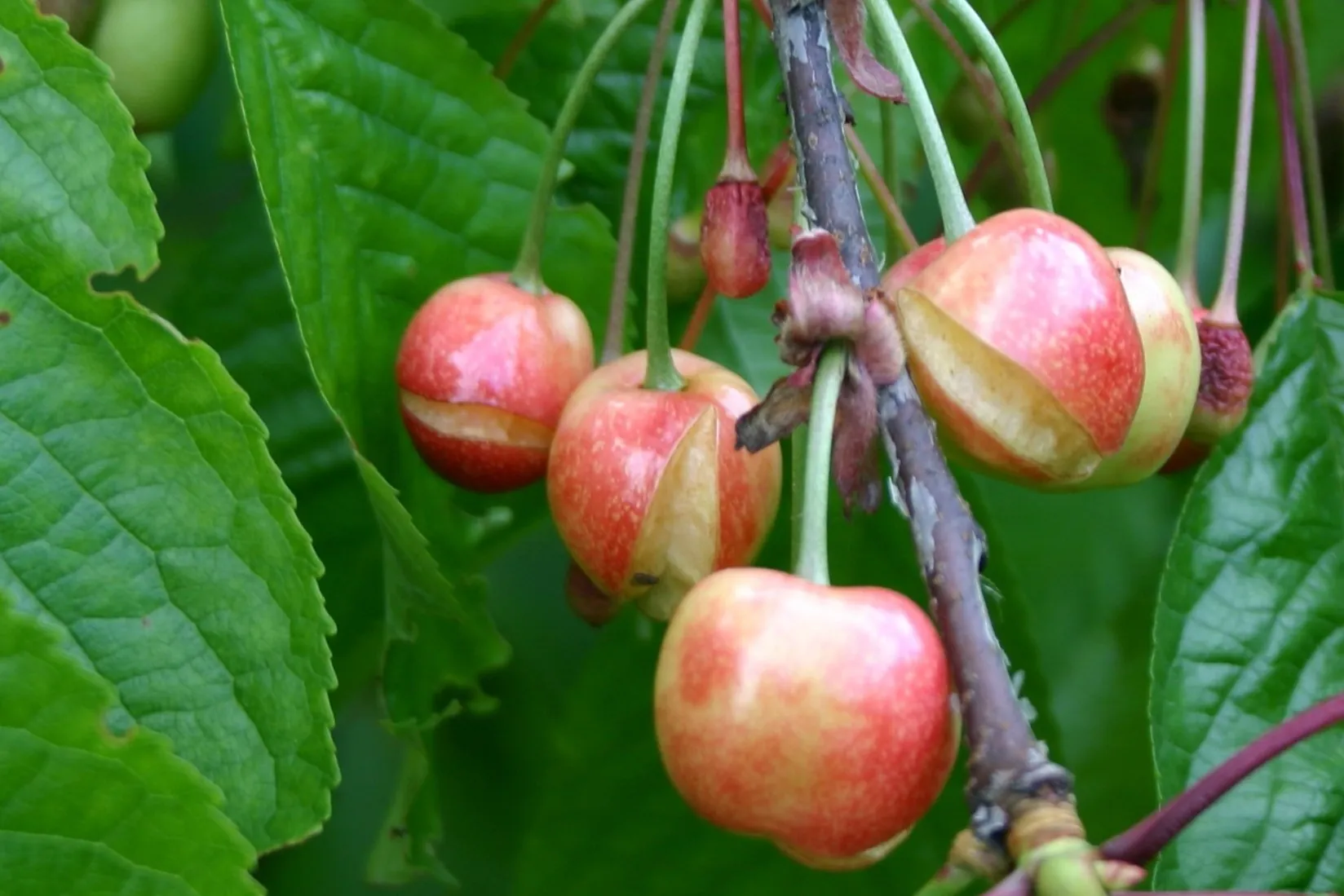 From the cherry breeding conducted by Amy Iezzoni, professor emeritus at Michigan State University, five new dwarfing and early rootstocks have recently been commercially released: the Corette® series. All five rootstocks significantly reduce the size of the tree compared to standard rootstocks and entry into production occurs within the third year, two years earlier than traditional planting systems. These rootstocks have completed the experimentation phase in the USA both for sweet cherry, in very high density wall planting systems, and for sour cherries, using a high density production system and mechanized harvesting above the row.
From the cherry breeding conducted by Amy Iezzoni, professor emeritus at Michigan State University, five new dwarfing and early rootstocks have recently been commercially released: the Corette® series. All five rootstocks significantly reduce the size of the tree compared to standard rootstocks and entry into production occurs within the third year, two years earlier than traditional planting systems. These rootstocks have completed the experimentation phase in the USA both for sweet cherry, in very high density wall planting systems, and for sour cherries, using a high density production system and mechanized harvesting above the row.
The main characteristics of the Corette® series rootstocks are reported below (Iezzoni, 2022).
Cass (Corette® 1)
Dwarfing, precocity-inducing, clonal rootstock for cherry.
Origin: Michigan State University, East Lansing, by A. Iezzoni. Hybrid of unknown complexity involving Prunus avium, P. cerasus, and P. fruticosa. USPP 30,553; 4 June 2019.
Plant: vigor weak; branching habit spreading.
Rootstock performance: induces reduced vigor and increased precocity compared to trees budded on mazzard seedling rootstocks; vigor lower than Gisela® 5; grafted plants tend to produce root suckers; exhibits moderate sensitivity to high soil pH.
Clare (Corette® 2)
Dwarfing, precocity-inducing, clonal rootstock for cherry.
Origin: Michigan State University, East Lansing, by A. Iezzoni. Hybrid of unknown complexity involving P. avium, P. cerasus, and P. fruticosa. USPP 32,852; 2 Mar. 2021.
Plant: vigor weak; branching habit spreading.
Rootstock performance: induces reduced vigor and increased precocity compared to trees budded on mazzard seedling rootstocks; vigor lower than Gisela® 5; grafted plants tend to produce root suckers.
Clinton (Corette® 3)
Dwarfing, precocity-inducing, clonal rootstock for cherry.
Origin: Michigan State University, East Lansing, by A. Iezzoni. (P. cerasus × P. canescens) O.P. USPP 30,538; 28 May 2019.
Plant: vigor weak; branching habit spreading.
Rootstock performance: induces reduced vigor and increased precocity compared to trees budded on mazzard seedling rootstocks; vigor similar to Gisela® 5; grafted plants produce no root suckers.
Crawford (Corette® 4)
Dwarfing, precocity-inducing, clonal rootstock for cherry.
Origin: Michigan State University, East Lansing, by A. Iezzoni. P. cerasus × (P. cerasus × P. canescens). USPP 30,473; 7 May 2019.
Plant: vigor weak; branching habit spreading.
Rootstock performance: induces reduced vigor and increased precocity compared to trees budded on mazzard seedling rootstocks; vigor similar to Gisela® 5; grafted plants produce no root suckers.
Lake (Corette® 5)
Clonal rootstock for cherry.
Origin: Michigan State University, East Lansing, by A. Iezzoni. Hybrid of unknown complexity including P. avium and P. fruticosa. USPP 32,813; 16 Feb. 2021.
Plant: vigor weak; branching habit spreading.
Rootstock performance: induces reduced vigor and increased precocity compared to trees budded on mazzard seedling rootstocks; vigor lower than Gisela® 5; grafted plants tend to produce root suckers; exhibits tolerance to water stress compared to Gisela® 5.
Learn more
Bibliography
L. Long, G. Lang, C. Kaiser (2020). Sweet Cherry. CABI Books
A. Iezzoni (2022). Cherry Rootstocks. Register of New Fruit and Nut Cultivars List 51. HORTSCIENCE
Cherry Times - All rights reserved












